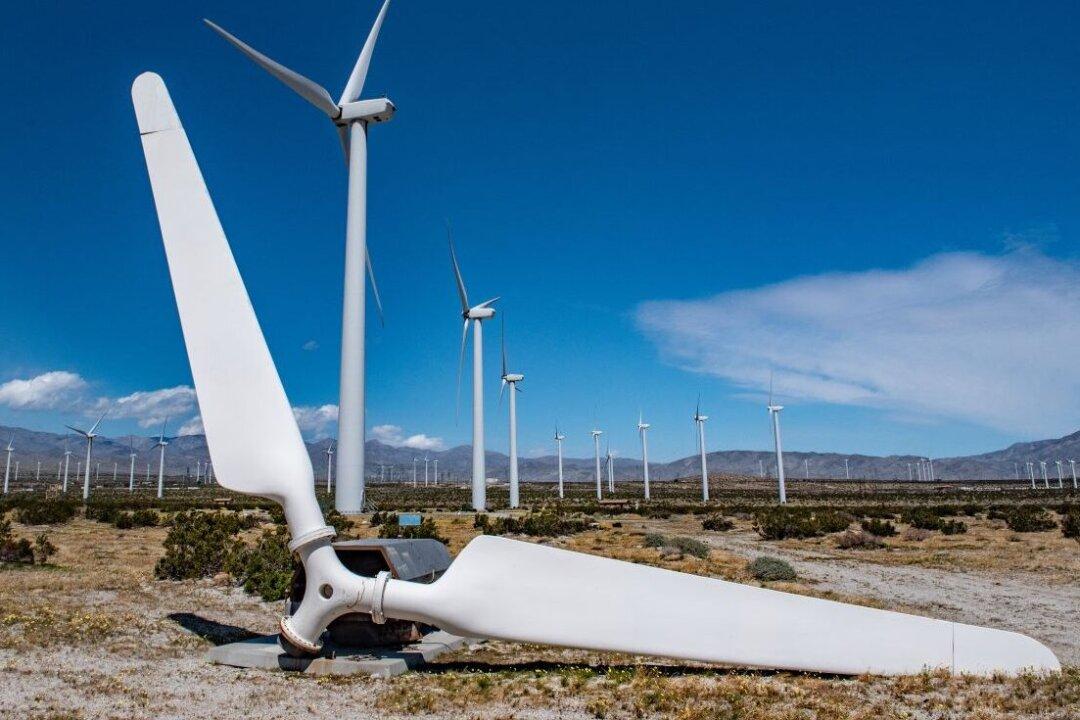Wind turbines across the United States have been failing more frequently in recent times, triggering concerns about additional costs resulting from such failures as well as their impact on wind-power projects. Offshore wind farms, deployed in the name of environmentalism, are now seen as disastrous for ocean life.
Some turbine failure include the one in the town of Ames, Oklahoma, where a wind turbine hundreds of feet tall collapsed in June. Manufactured by General Electric (GE), the turbine had been in operation for less than a year, according to a Bloomberg report. In Colorado, another GE turbine collapsed a few days later. The operator of the wind farm, NextEra Energy, blamed a blade flaw for the incident. In Dodge County, Wisconsin, part of a wind turbine owned by NextEra plummeted to the ground last week. Similar wind-turbine malfunctions have been reported in Europe as well.





